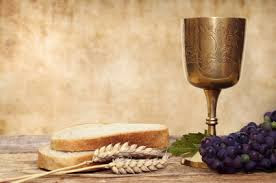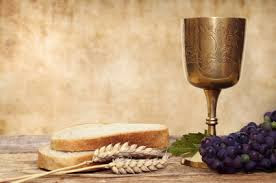How can we combine all three on our way to Easter
The period we go through until the Resurrection of the Lord is a good opportunity to detoxify from meat and to include in our diet vegetables, seafood, legumes and fruits
"Why do I get fat every time I fast?" This is one of the most frequently asked questions by dietitians during Lent, as there is a misconception that the fasting diet is dietary.
Fasting has great religious value, as it strengthens temperance and will, but at the same time it is a good opportunity to detoxify from meat and to include in our daily diet more vegetables, seafood, legumes and fruits.
But if we are not careful, it is possible to suddenly see our scales go up. Let us see together what are the "traps" that we must avoid, but also how we can enjoy the treasures of Cypriot cuisine by fasting. At the end of the article there is also my favorite fasting recipe-bonus.
The secrets
The six plus one "secrets" for the fasting period are:
* If you are fasting only meat:
1. Oily foods are not a diet…: Oily foods contain much more calories than you think. The reason; They contain oil. Think that a tablespoon of olive oil, which is so beneficial for our health, reaches 120 calories!
TIP: Put a spoon in your pot for each person. If e.g. you cook beans and your recipe is for 4 people, put only 4 tablespoons of oil.
EXTRA TIP: And a secret to preserve the nutrients of olive oil and its aroma: use a little of it at the beginning of cooking, but add the largest amount at the end, when your food is almost ready.
2. Beware of bread: The most common mistake during this period of fasting is the uncontrolled consumption of bread. The calories of oily foods are multiplied if you eat them with bread, because the well-known "dipping" increases the consumption of oil.
TIP: One slice of bread is enough. Eat it without dipping it in the sauce or salad.
3. Cookies, buns and halva: Calories are usually hidden in the most delicious foods. This also applies during the Easter period. Of the three, cookies are your biggest enemy, as just one can have up to 220 calories! The bun needs attention, but can be consumed in moderation, since a slice contains 160-230 calories depending on its thickness.
TIP: Prefer halva! Although it contains 260-340 calories depending on the type and size of the portion, its calories are "useful", as it contains high quality proteins, minerals, vitamins and "good" fats. So if you want something sweet for after the meal, prefer a little halva.
4. Beware of snacking…: Fasting foods usually do not fill us up for a long time and so we often resort to snacking. Avoid snacking and prefer larger meals that will fill you up.
TIP: If you definitely want to eat something between meals, prefer "safe" foods such as a carrot, a little cucumber, a fruit…
5. Salad is your friend…: Now that you do not add oil, salads are even better for you. Try to eat as much salad as you can with your meal, as it will fill you up more easily and will be good for your weight and health.
6. Alternative sources of protein…: Seafood (squid, cuttlefish, octopus), legumes, snails, mushrooms, nuts, soy and its products can help you maintain a good protein intake.
7. Alcohol needs moderation…: Clearly and from a health point of view, alcohol consumption should always be done in moderation, but there is one more reason to be careful. Alcohol can have very significant effects on your energy consumption. For example, a glass of beer or wine contains more calories than a large slice of bread!
Cypriot cuisine and fasting
Cypriot cuisine offers several options for a balanced fasting diet, during which you can combine nutrients and taste. But let's look at what you need to look out for in terms of calories.
*Taro root: Zucchini is a good solution for the fasting period, as it offers several cooking options and gives few calories.
TIPS: 100 gr. raw zucchini contain about 73 calories, eat the yahni (without meat) and cook it oily, adding potatoes, carrots, tomatoes and herbs to the pot, but in this case pay attention to the oil (put one tablespoon for each person) and the bread that will accompany it.
* Karaoles: Snails are a highly nutritious food that contains animal proteins, giving us large amounts of valuable omega-3 fatty acids.
TIP: A portion of caraols, consisting of 6 pieces, cooked yam with tomato and onion, has about 200 calories.
* Cups: Cups are an ideal food for the fasting diet, since of course they are eaten without the addition of minced meat. A portion of 5 cups contains about 170 calories, as long as you pay attention to the addition of oil during cooking.
TIP: If you do not fast dairy products and want to accompany them with yogurt, prefer one with 0% -2% fat
* Halloumi: Those of you who do not fast dairy during Lent and belong to those who can not resist the halloumi, it is good to know that it contains about 300 calories per 100 grams.
TIPS: Consume it fresh or grilled, since frying it in a little oil doubles its calories. Limit the amount to 30 grams per day, which contain about 100 calories. Prefer halloumi with reduced fat, which contains about 60 calories per 30 grams.
Bonus recipe: Shrimp skewers
BECAUSE we dietitians… eat, I will share with you one of my favorite fasting recipes. Shrimp skewers. A nutritious food, rich in proteins of high biological value, iron and selenium. Each serving (6 skewers) has about 320 calories.
-Ingredients for 4 people (from 6 skewers each)
24 medium shrimp (about 1 kg)
5 tablespoons olive oil
2 teaspoons sweet ginger (grated or powdered)
1 lemon
Salt, pepper, parsley
Skewers
Implementation
Boil the shrimp and clean the shell. We pass a shrimp on each stick. We spread them in a pyrex. Beat 2 tablespoons olive oil and the juice of half a lemon and sprinkle with the shrimp. Bake either in a non-stick preheated pan for 2 minutes on each side until they turn brown (no more than 4 minutes in total!) Or on the grill, in a preheated oven at 200 degrees for 4 minutes. Make the sauce in a bowl. Beat the remaining olive oil (ie the 3 tablespoons), the juice of the other half of the lemon and the ginger, salt, pepper and add the chopped parsley. Serve 6 skewers in each and pour a tablespoon of sauce on top. Attention: no more! We can accompany our meal with green salad.
Source: Sigmalive

